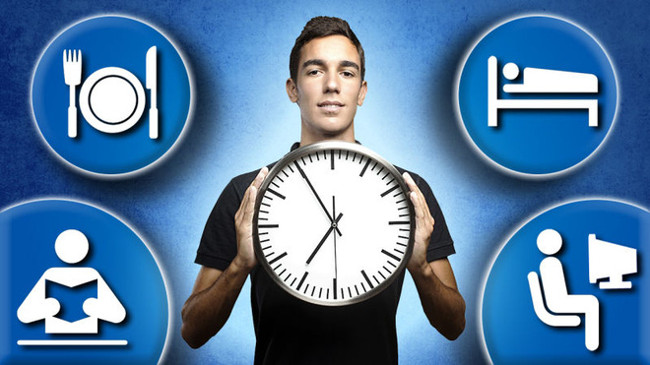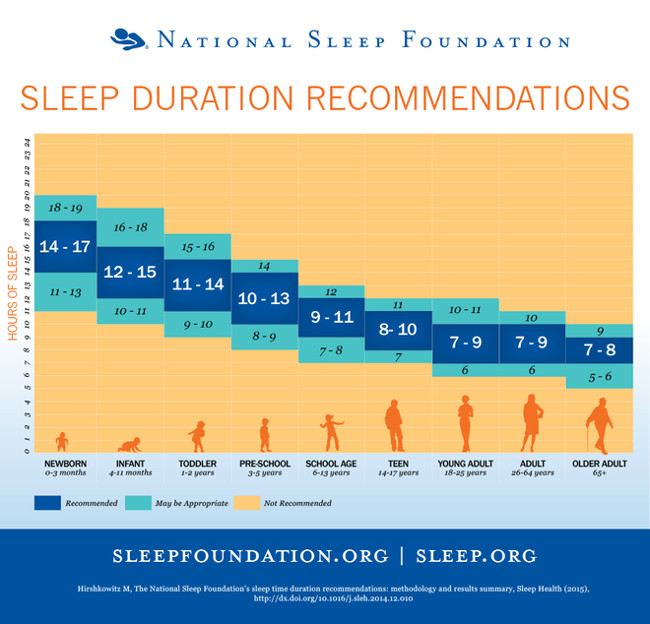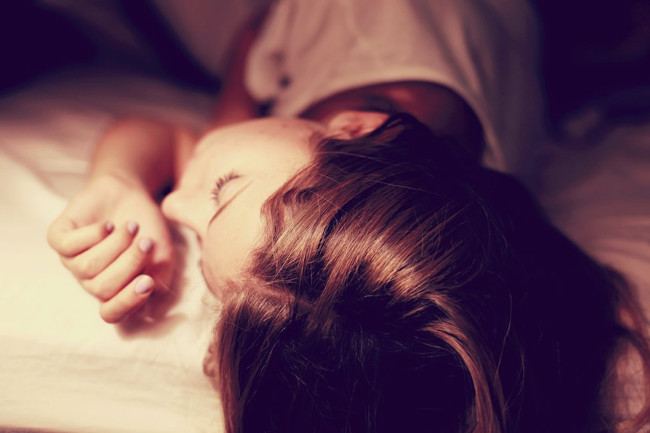How many hours you need to sleep every day, only you know this
Theoretically, sleep will take us 8/24 hours a day, equivalent to one third of every human life. But in reality, this is very few people can do as it is in theory.
Usually, people will sleep less or more than 8 hours a day. However, some people believe that they need only 4 hours of sleep a night to maintain their health.
It is these things that make many people wonder and ask the question: So how many hours do we really need to sleep every day?

To answer this question is really difficult, because to science there is no exact answer. This may seem a bit strange right? Most of the time when we read newspapers about this issue, perhaps somewhere says you need 7-9 hours of sleep every day. But this is just an average number, not specific, and your sleep is just calculated and you know the most specific.
Here are 5 reasons, only you can calculate how many hours a day you sleep.
1. Why do doctors recommend 7-9 hours of sleep each day?

If we do a survey of each person's sleeping time over the entire world population, the results we get will be similar to the doctor's advice. Most of the population needs to sleep, resting from 7-9 hours a day.
To prove this, a chart is extracted from the book Internal Time: Chronotypes, Social Jet Lag, and Why You're So Tired (roughly translated as Internal Time: The type of biological clock, the Jet Lag commune Assembly and why are you so tired? German biologist Till Roenneberg.
In the chart, not everyone needs 7-9 hours of sleep a day. There is a small percentage of the population who needs more sleep, and a small percentage of them just need less sleep. Can this explain why someone sleeps 4 hours and is still healthy to complete the job?
2. Each body has its own biological clock, which determines the time of rest

Most of us just put ourselves in one of two categories: early risers or night owls. But this distraction is not the right division of science. That is just the way that each person spreads his word and is only an estimate.
If we rely on it to confirm what kind of person we are, it is arbitrary, said Dr. David Welsh, a professor of body biological clock research at the University of California, San Diego. He said that when scientists looked at the results of a large-scale survey, they found that not only two types of people got up early and night owls.
Most of us belong to a basic group, meaning to wake up and go to bed at a certain time frame. Some people sleep earlier and can get up earlier. Some people sleep late and wake up late. But there is no boundary that separates people from each other.
This is because each person has a separate biological clock, making us feel alert or sleepy and different times of the day. There are many factors that affect a person's biological clock such as hormone levels, time of exposure to light and genetics.
No one can control sleep at their disposal throughout this life. So a familiar saying, we are all different.
3. The amount of time it takes to sleep changes every day in your life

Each age has a different sleeping time. 7-9 hours is the recommended sleep time for adults. As for the elderly, they often sleep less, and children need more sleep. The chart above of the US National Sleep Research Organization shows that the need for sleep varies with age.
Aside from the changing sleep interval, the body clock also changes day by day. According to Roenneberg, most young children tend to get up earlier than adults. During puberty, the body's biological clock changes again, we become night owls and then again get up earlier after 20 years of age.
4. Self-adjusting your biological clock

Although the need for sleep (including the biological clock, the time of sleep and wake-up, the length of sleep needed) is mostly fixed by genetic factors, but you can still change Is the biological clock in the body. Or in a simpler way, at least, an effort will help you get up earlier.
Our bodies respond to light, especially natural light from the sun. Exposure to light in the morning will tell our body that it's time to be alert and active.
In the evening, the dark environment will stimulate the body to produce melatonin, the hormone helps the body relax and quickly fall asleep. So, if you are a person who uses the phone at night, the screen light of the phone will make it difficult to sleep, even sleepless.
Light is the main factor affecting the biological clock. For example, in the case of an airplane traveler over many time zones, the effect called jet lag will make him sleepy in the middle of the morning, or vice versa awake right in the middle of the night.
However, after a period of living in a new place, the day / night beat, the main factor is light, will "train" his body, helping the biological clock to be adjusted back. new life rhythm.
Now, you don't need to book a plane ticket to the other side of the hemisphere to adjust your biological clock. Use the deciding factor of light. High exposure to natural light will help you stay alert and vice versa, nighttime darkness is the key to adjusting sleep.
5. Sleep is your own, understand yourself more

Every day there are several sleep studies published somewhere, in this magazine, the other magazine, by American, European or Japanese scientists. And then people will rely on it to say that "studies have found that 7 hours of sleep is optimal and not 8".
To the researchers, it is not clear what the sleeping formula for each person is. Everyone has a different need for sleep. The findings from a study cannot become advice for everyone.
So, experts recommend that each person should find out for himself or herself and it is you who can find yourself the best time to rest.
To find yourself the best rest for your body, try the following. Relax yourself for about a week: Go to bed when you're tired and wake up when you're ready. Limit stimulants like alcohol or caffeine. Exposure to daylight and exercise.
If you find it difficult to sleep, lose sleep when you have used a lot of ways, then you should see your doctor for advice. You may be in a small proportion of the population with sleep apnea, especially when others remind you of snoring.
Doctors can help you find sleep disorders that happen to you. So invest time to give yourself a better sleep. It should be noted that, in addition to diet and exercise, sleep is also one of the three key health keys.